#Pulsar
Explore tagged Tumblr posts
Text
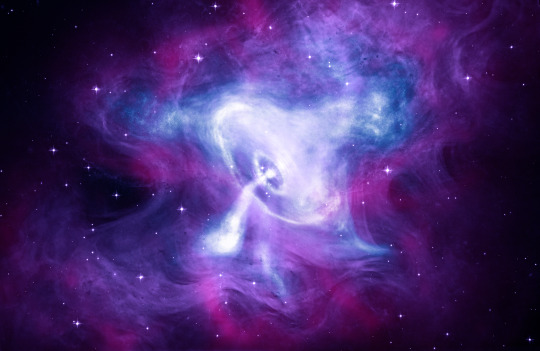
Navigating Deep Space by Starlight
On August 6, 1967, astrophysicist Jocelyn Bell Burnell noticed a blip in her radio telescope data. And then another. Eventually, Bell Burnell figured out that these blips, or pulses, were not from people or machines.

The blips were constant. There was something in space that was pulsing in a regular pattern, and Bell Burnell figured out that it was a pulsar: a rapidly spinning neutron star emitting beams of light. Neutron stars are superdense objects created when a massive star dies. Not only are they dense, but neutron stars can also spin really fast! Every star we observe spins, and due to a property called angular momentum, as a collapsing star gets smaller and denser, it spins faster. It’s like how ice skaters spin faster as they bring their arms closer to their bodies and make the space that they take up smaller.
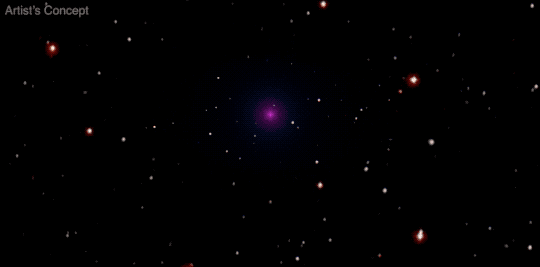
The pulses of light coming from these whirling stars are like the beacons spinning at the tops of lighthouses that help sailors safely approach the shore. As the pulsar spins, beams of radio waves (and other types of light) are swept out into the universe with each turn. The light appears and disappears from our view each time the star rotates.
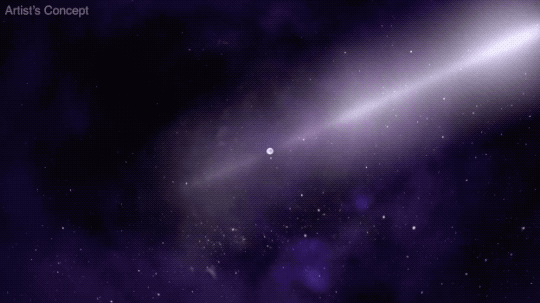
After decades of studying pulsars, astronomers wondered—could they serve as cosmic beacons to help future space explorers navigate the universe? To see if it could work, scientists needed to do some testing!
First, it was important to gather more data. NASA’s NICER, or Neutron star Interior Composition Explorer, is a telescope that was installed aboard the International Space Station in 2017. Its goal is to find out things about neutron stars like their sizes and densities, using an array of 56 special X-ray concentrators and sensitive detectors to capture and measure pulsars’ light.
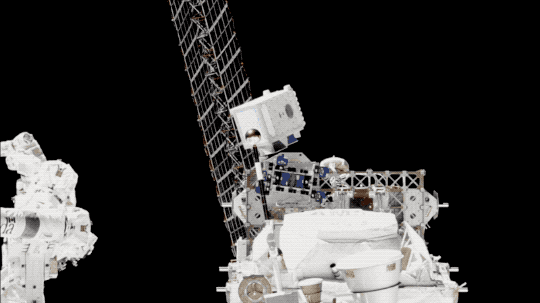
But how can we use these X-ray pulses as navigational tools? Enter SEXTANT, or Station Explorer for X-ray Timing and Navigation Technology. If NICER was your phone, SEXTANT would be like an app on it.
During the first few years of NICER’s observations, SEXTANT created an on-board navigation system using NICER’s pulsar data. It worked by measuring the consistent timing between each pulsar’s pulses to map a set of cosmic beacons.
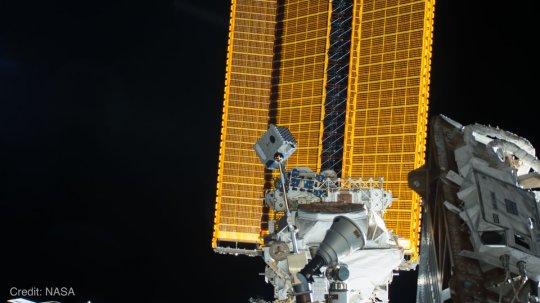
When calculating position or location, extremely accurate timekeeping is essential. We usually rely on atomic clocks, which use the predictable fluctuations of atoms to tick away the seconds. These atomic clocks can be located on the ground or in space, like the ones on GPS satellites. However, our GPS system only works on or close to Earth, and onboard atomic clocks can be expensive and heavy. Using pulsar observations instead could give us free and reliable “clocks” for navigation. During its experiment, SEXTANT was able to successfully determine the space station’s orbital position!

We can calculate distances using the time taken for a signal to travel between two objects to determine a spacecraft’s approximate location relative to those objects. However, we would need to observe more pulsars to pinpoint a more exact location of a spacecraft. As SEXTANT gathered signals from multiple pulsars, it could more accurately derive its position in space.
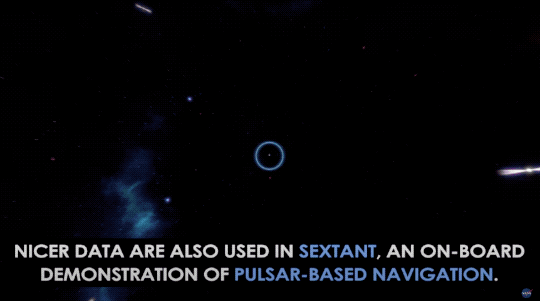
So, imagine you are an astronaut on a lengthy journey to the outer solar system. You could use the technology developed by SEXTANT to help plot your course. Since pulsars are reliable and consistent in their spins, you wouldn’t need Wi-Fi or cell service to figure out where you were in relation to your destination. The pulsar-based navigation data could even help you figure out your ETA!
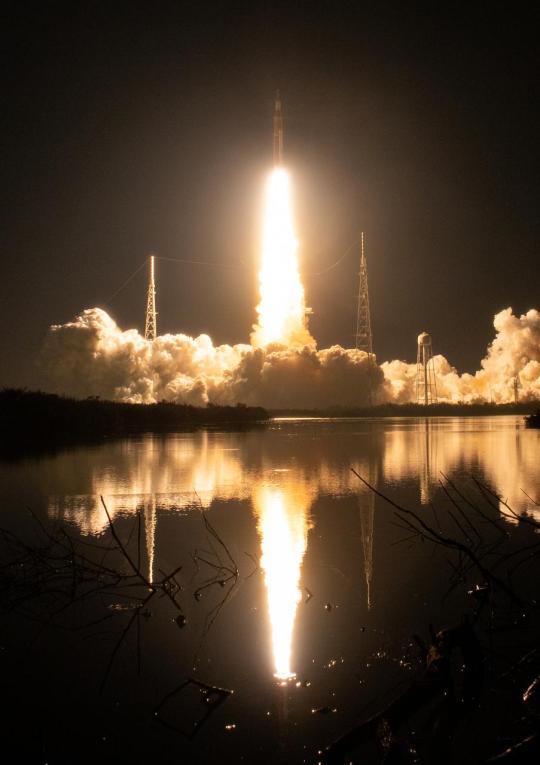
None of these missions or experiments would be possible without Jocelyn Bell Burnell’s keen eye for an odd spot in her radio data decades ago, which set the stage for the idea to use spinning neutron stars as a celestial GPS. Her contribution to the field of astrophysics laid the groundwork for research benefitting the people of the future, who yearn to sail amongst the stars.
Keep up with the latest NICER news by following NASA Universe on X and Facebook and check out the mission’s website. For more on space navigation, follow @NASASCaN on X or visit NASA’s Space Communications and Navigation website.
Make sure to follow us on Tumblr for your regular dose of space!
#NASA#pulsar#Jocelyn Bell Burnell#spaceblr#space#star#neutron star#deep space#telescope#navigation#universe#astronomy#science
4K notes
·
View notes
Text

Yakuza is coming to fortnite…
#龍が如く#fan art#rgg#ryuu ga gotoku#ryu ga gotoku#like a dragon#lad#yakuza#yakuza 0#yakuza kiwami#akira nishikiyama#pulsar#art#my art#whatever tf u put here#im so bad at tagging i usually copy and paste the same taglist#cant do that here
194 notes
·
View notes
Text
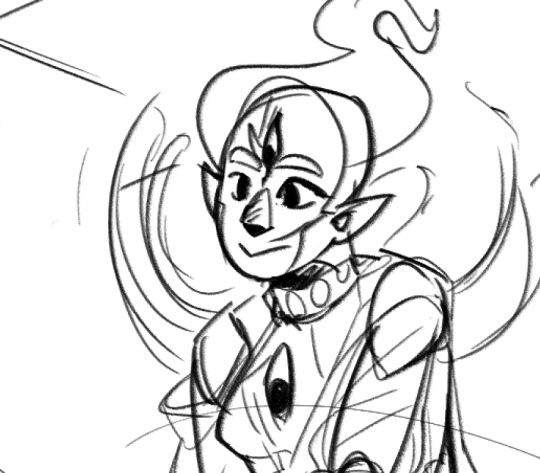
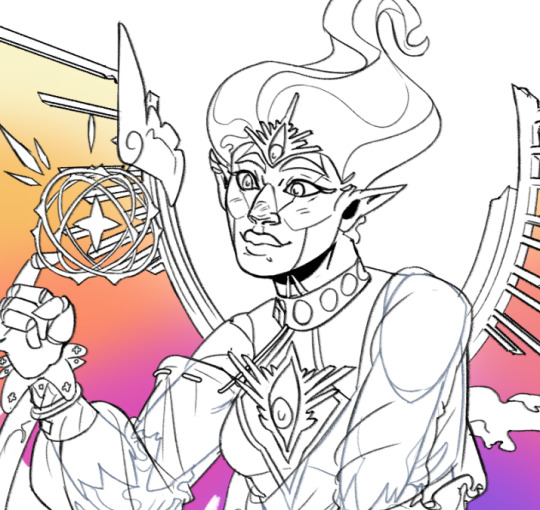
I find the sketch vs lineart of this drawing to be so incredibly funny (i actually went from the sketch above to the clean lineart directly! very unusual for me!)
#sketch#doodle#ttrpg#fantasy#dnd#lineart#wip#work in progress#genasi#angel#aasimar#air genasi#artists on tumblr#character art#oc#oc art#original character#pulsar#dungeons and dragons#pathfinder
262 notes
·
View notes
Text

gods strangest transgender animal
260 notes
·
View notes
Text





Nissan Pulsar Hatchback
#nissan pulsar#nissan#pulsar#hatchback#hot hatch#nissan pulsar hatchback#80s#1980s#cars#80s design#80s style
108 notes
·
View notes
Text

Happy Potluck, everyone! I had a wonderful time painting Pulsar, one of the poster characters for the event this time around, for Lambeth!
I absolutely love their celestial theme and had a blast planning where to place little references around the composition. Stars and energy are just so fun to draw!
#illustration#digital art#fantasy art#ttrpg character#ttrpg art#potlucksecretsatan2024#pss2024#dnd oc#oc art#celestial#aasimar#druid#pulsar#pulsar's colors are some of the best out there#and it was an incredible experience including their full palette#they're so cool
112 notes
·
View notes
Text




Akyaka azmak nehri
#muğla#akyaka#azmaknehri#motorbike#motorcity#motorcross#motors#motorcycle#motorrad#motortrend#bajajpulsar#pulsar
87 notes
·
View notes
Text

#animated gif#animated gifs#gif#gifs#old advertisements#old ads#retro#VHS#Nissan#Pulsar#Nissan Pulsar#switzerland#I think#4wd Europe#whatever that means#helicopter shot#90s
46 notes
·
View notes
Text
Top 4 otome men who I'd let keep me in a basement
Sometimes I just want to stop adulting and fantasize about anime men taking care of me by keeping me in their basements and dealing with all of life's hardships for me! that sounded way kinkier than I meant it to be....
#4 - Pulsar (Eternal Afterlife)

- Wouldn't keep me in a basement but I love him anyways
#3 Jiro Kirisaki (Tokyo Debunker)
yes ik tkdb isn't an otome

- 30% chance he'd forget about me and I'd starve to death
- his basement is the Mortkranken Lab... it's too populated to properly enjoy avoiding responsibilities
#2 Mordred (Secret Kiss With Knight)

- too horny
-would probably be too busy with world domination to take care of me
- is a wanted criminal (I don't want the police to take me away!!)
#1 Lawrence (Dangerous Fellows)

- was planning to do that anyways
- well prepared
- would stay with me in the basement and we can both hide from the hardships of life
- Probably has the best basement
#im completely normal#obsessive love#tokyo debunker#tkdb#jiro kirisaki#pulsar#secret kiss with knight#mordred#dangerous fellows#lawrence#otome game#otome#eternal afterlife#eternal afterlife pulsar
90 notes
·
View notes
Text

@/ilyfynn’s forever winter fic has me in shambles so i thought id draw something small :)
37 notes
·
View notes
Text

Has anyone done this yet,,,
#is this even still funny#minedai#mine yoshitaka#daigo dojima#rgg#ryuu ga gotoku#ryu ga gotoku#yakuza#yakuza 3#like a dragon#fanart#doodle#art#shitpost#pulsar
95 notes
·
View notes
Text
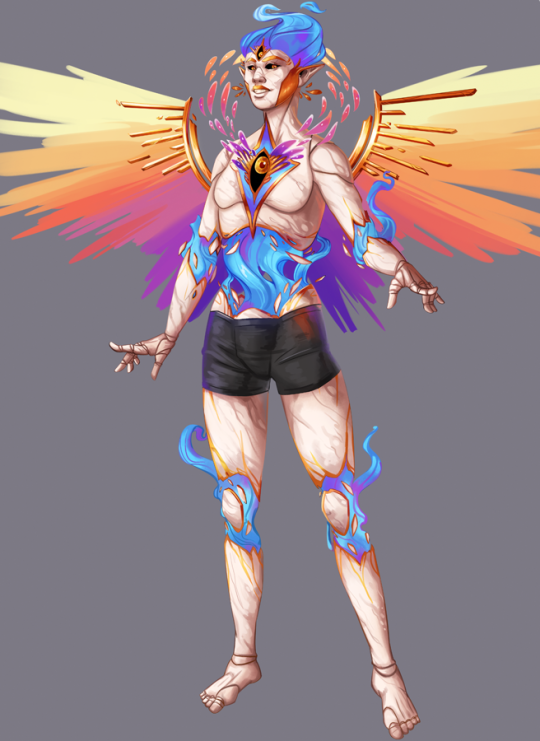

Bringing a lil Pulsar, an aasimar/air genasi cleric (who belongs to my partner!) It was a good way to flesh out their design
I wanted to play with that marble texture so bad ngl- Pulsar is basically a bunch of energy contained in a doll-like marble body and I love them for it!! Slightly spooky creature, all around sweetheart
As always reblogs are super appreciated!
#dnd#dungeons and dragons#aasimar#genasi#air genasi#cleric#fantasy#character design#eldritch#doll#elf#sygdomthings#syg2023#pulsar#celestial#angel#art#monster#pathfinder#ttrpg
593 notes
·
View notes
Text

whagt if we were both gay and plushies also
#FINE. FINE. WGATEVER. IT CAN GO HERE TOO. GETS REALLY SCARED#oc#furry#furry art#fursona#dragon#pulsar#epithet#favorites#stacksart
249 notes
·
View notes
Text




Edgy space bois! Now available in three different sizes!
#my art#spookz doodles#utmv#outerfell#antares#nebula#proxi#pulsar#scutum#rigel#underfell#undertale#undertale au#sans
109 notes
·
View notes
